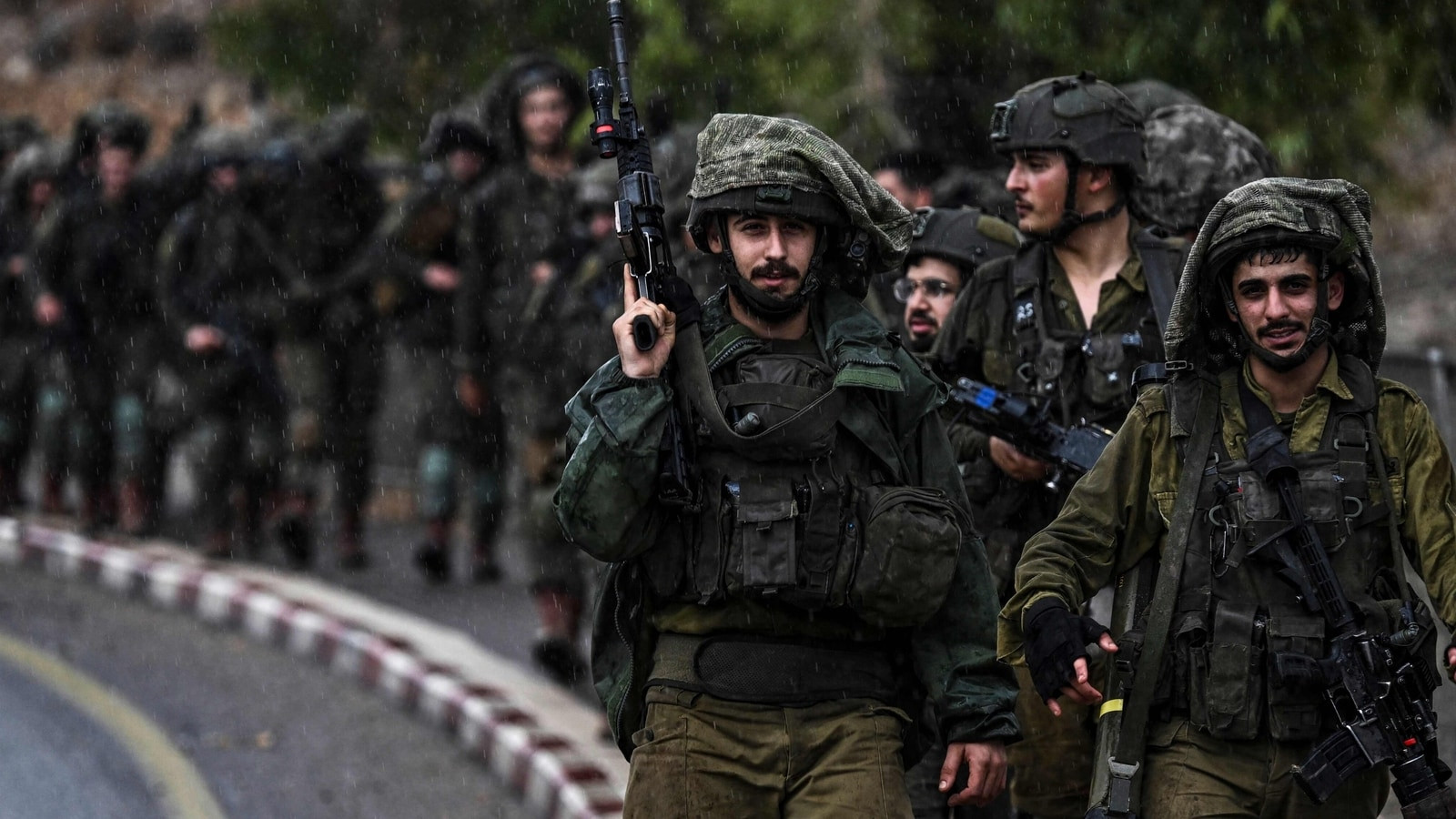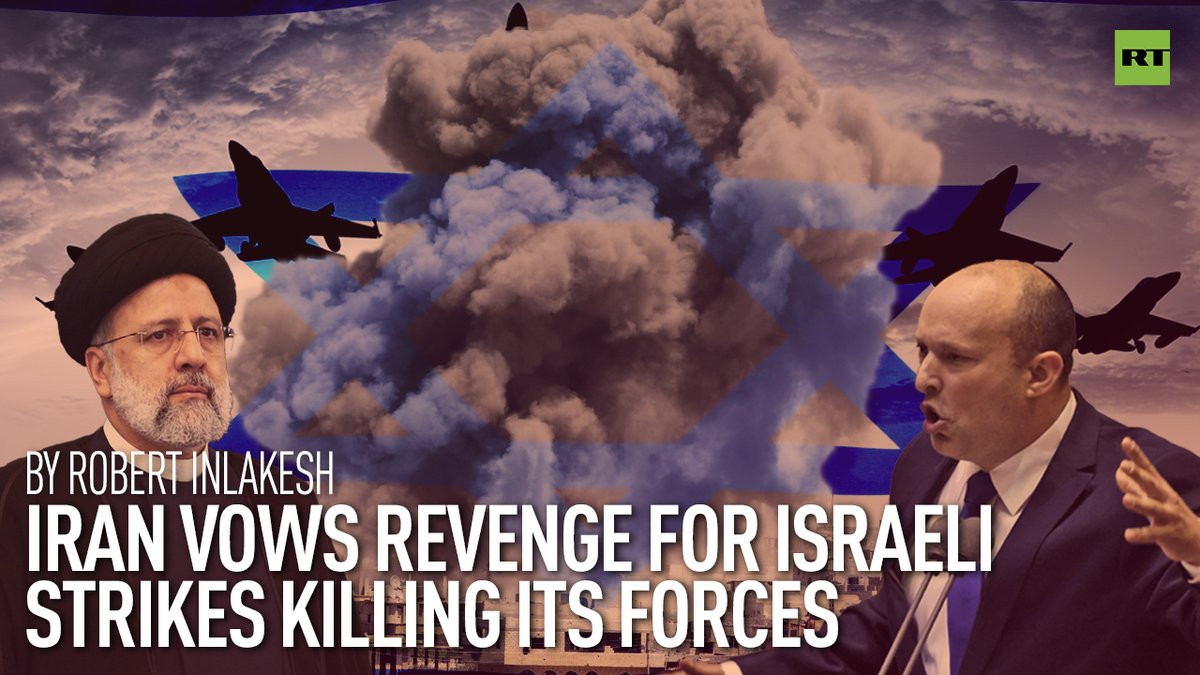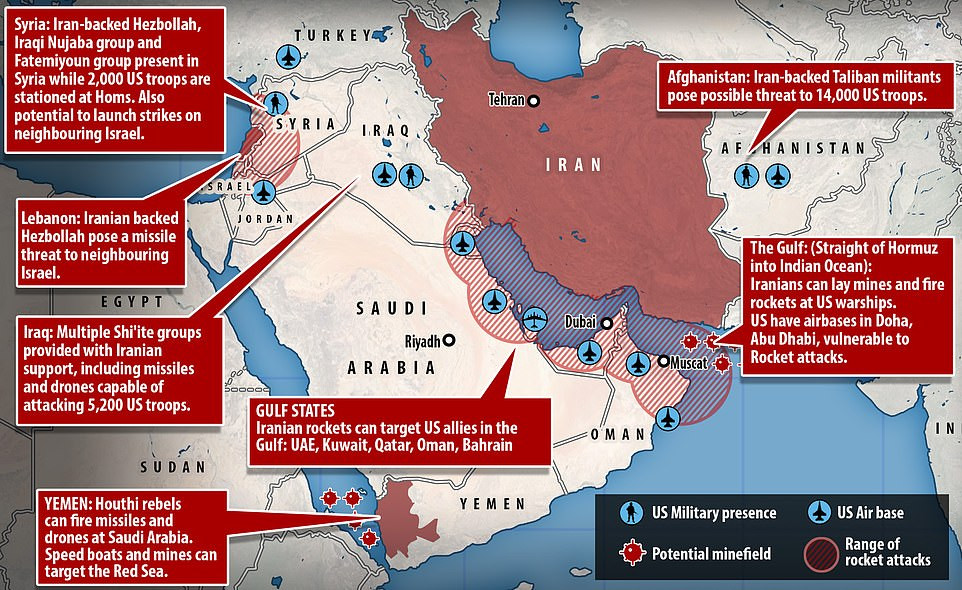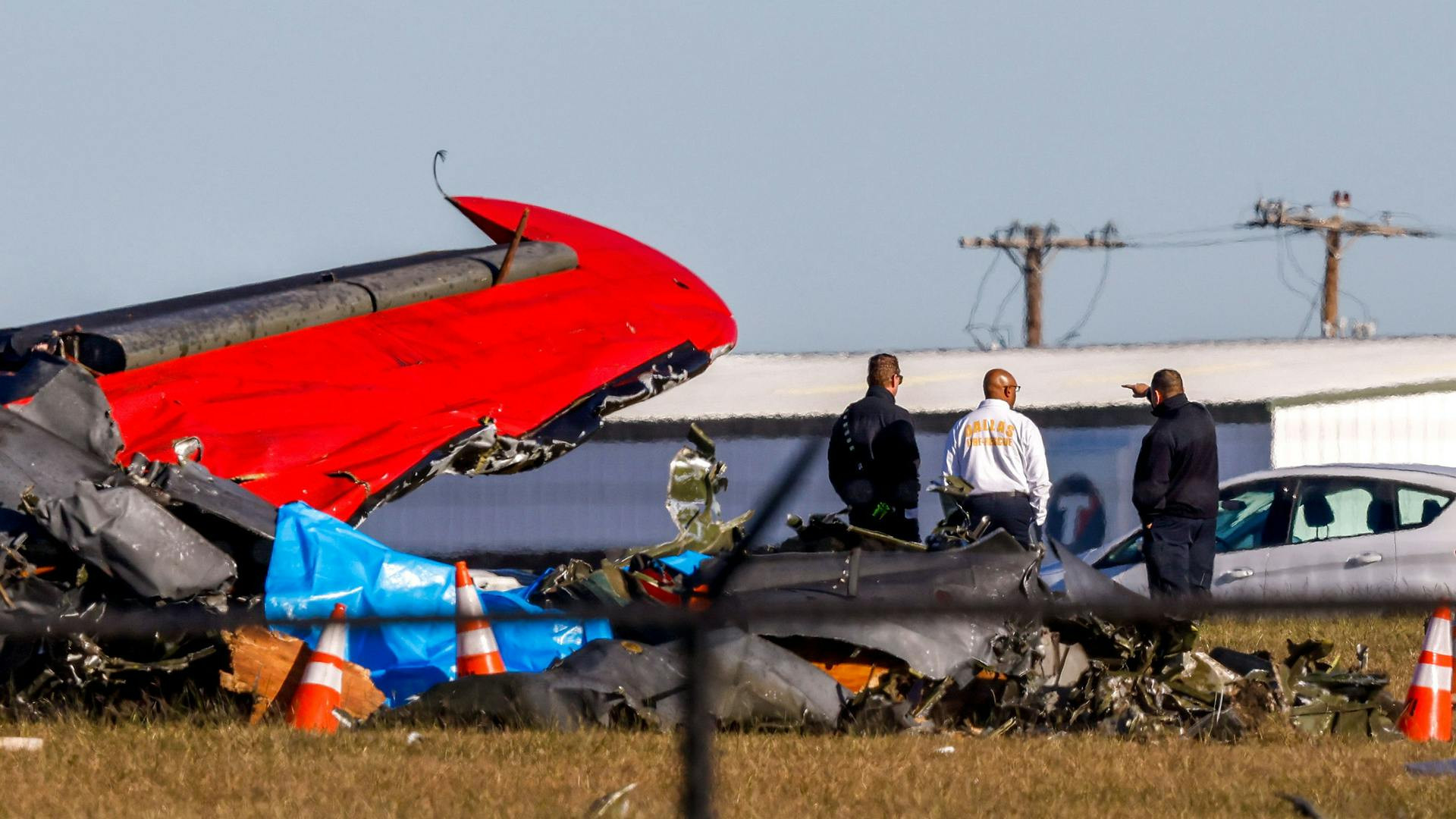Crisis meeting of Arab states this week may set agenda for retaliation as countries urge Iran to show restraint
Israeli leaders have said they are prepared for an Iranian-led attack. The defence minister, Yoav Gallant, said in response to mounting Iranian threats on Monday that the Israeli military was ready for a “swift transition to offence”, echoing comments by the prime minister, Benjamin Netanyahu, who said on Sunday the country was already engaged in a multi-front war with Iran and its allies.
Previous efforts by the deceased Iranian president Ebrahim Raisi to win the support of Gulf states for military action or direct economic sanction failed. Raisi died in a helicopter crash in May.
President Joe Biden met his national security team in Washington, after which the US secretary of state, Antony Blinken, repeated calls for a ceasefire in Gaza and urged all parties to refrain from escalating.
Blinken, who also spoke with Qatari prime minister Sheikh Mohammed bin Abdulrahman Al Thani and Egyptian foreign minister Badr Abdelatty on Monday, was earlier reported to have indicated he was expecting Iran to launch a series of coordinated strikes as soon as Monday.
At a signing ceremony with his Australian counterpart in Washington he said the US was “engaged in intense diplomacy, pretty much around the clock” and called for parties to “break this cycle” of violence and agree a ceasefire in the Gaza conflict.
State department spokesperson Matthew Miller said Washington had been urging countries to pass messages to Iran “that it is very much not in their interest to launch another attack on Israel.”
In a previous military exchange in January 2020 between the US and Iran, the Islamic Revolutionary Guards Corps (IRGC) mistakenly shot down a Ukrainian civil flight from Tehran to Kyiv, killing all 176 occupants on board.
Russia’s security council secretary, Sergei Shoigu, held talks with the Iranian leadership, including the president, Masoud Pezeshkian and Rear Adm Ali Akbar Ahmadian, a senior Islamic Revolutionary Guard Corps commander who serves as secretary of the Supreme national security council in Tehran on Monday.
Shoigu, previously Russia’s defence minister, was removed from that post by Vladimir Putin but remains central to Russia’s defence cooperation with Iran. There is no sign that Russia is urging restraint.
Iranian state media reported that Pezeshkian called for expanded relations with its “strategic partner Russia” during his meeting with Shoigu and said that Israel’s “criminal actions” in Gaza and the assassination of Haniyeh were “clear examples of the violation of all international laws and regulations”.
Iran is trying to portray its planned missile strikes as necessary to try to re-establish regional deterrence after the US’s failure to control its ally Israel.
In a meeting with foreign diplomats, the acting foreign minister, Ali Bagheri, said: “We all have a moral duty and responsibility not to remain silent in the face of the occupation, displacement and genocide of the Palestinian nation.” He added: “Indifference and appeasement in the face of evil and injustice is a kind of moral negligence and causes the spread of evil.”
Speaking at his weekly briefing, the Iranian foreign ministry spokesperson, Nasser Kanaani, said action from Tehran was inevitable.
“Iran seeks to establish stability in the region, but this will only come with punishing the aggressor and creating deterrence against the adventurism of the Zionist regime [Israel],” said Kanaani, as he called on the US to stop supporting Israel and added that the international community had failed in its duty to safeguard stability in the region and should support the “punishment of the aggressor”.
He added: “Terror is in the essence of the Zionist regime, and its survival depends on the continuation of the approach of state terrorism. The world should strongly condemn this crime, secondly, it should support the punishment of the aggressor and avoid any approach that means supporting the aggressor.”
His remarks were directed at Arab states, including Jordan, that cooperated with western powers on 13 April of this year to reduce the impact of the Iranian attack on Israel in April after the assassination of IRGC commanders in an Iranian consulate in Damascus on 1 April.
Jordan’s King Abdullah II spoke by phone to Biden, while the country’s foreign minister Ayman al Safadi called his British counterpart, David Lammy, as part of the flurry of diplomacy.
Safadi warned that the crisis would not end until Israel is persuaded to cease its military operations in Gaza, and British officials came away with the impression that it is almost inconceivable that Jordan will succumb to US pressure and agree to help shoot down any Iranian missiles flying over Jordanian soil towards Israel.
Inside Iran, those who have counselled caution, or even suggested that the country could diplomatically exploit Israel’s overreach, seem to have lost out to those who have argued that there should be a coordinated attack on Israel mounted by Hezbollah, Hamas, Iraqi militant groups, the Houthis in Yemen and Iran itself.
In the April episode, it took Iran 12 days to decide and launch its response. It used that time not only to calibrate its response, but also to send out messages that it was not seeking a regional war, messages that in turn led the US to restrain Israel in its own response.
Some of this messaging about the scale of both sides’ reaction is absent, but the longer the pause between the assassination of Haniyeh and Iran’s response, the more time exists for diplomacy to reduce the scope for misunderstandings.
On Monday, the top IRGC commander, Hossein Salami, repeated the group’s threat that Israel “will receive punishment in due time”, adding that Israel was digging its own grave.
US and Russian Officials Converge in the Region for Emergency Planning
As tensions escalate in the Middle East, high-ranking military officials from the United States and Russia have converged in the region for emergency planning.
The catalyst for the urgent visits appears to be the looming threat of an Iranian attack on Israel, predicted to occur ‘imminently’, according to US intelligence.
Russia Strengthening Security Ties with Iran
A high-ranking Russian delegation led by Sergei Shoigu, the Secretary of Russia's National Security Council, arrived in Tehran. The purpose of the visit, according to the Secretariat of the Supreme National Security Council of Iran, is to strengthen political and security ties and to discuss regional and international issues. However, the timing of Shoigu's arrival coincided with heightened military preparations and international concern.
US Bolsters Israel Defense
Meanwhile, Michael Erik Kurilla, the commander of the United States Central Command (CENTCOM), arrived in Israel on Saturday. Although a US official stated that Kurilla's trip was planned before the recent surge in tensions, it is now expected to serve as a crucial opportunity to bolster the international coalition defending Israel.
Earlier, Pentagon spokesman Pat Ryder announced that US Secretary of Defense Lloyd J. Austin discussed regional tensions with Israeli Defense Minister Yoav Gallant on Sunday.
International Calls for Restraint
On Monday, US Secretary of State Anthony Blinken and his Qatari counterpart Mohammed bin Abdulrahman Al Thani spoke on the phone to discuss the possible attacks by Iran and Hezbollah against Israel, stressing the need for de-escalation, according to Axios journalist Barak Ravid.
French President Emmanuel Macron said he has spoken with UAE President and Saudi Crown Prince on the situation.
“We call on all stakeholders to show responsibility and restraint to avoid a regional conflagration. No one has any interest in escalation,” he said.
Israel Ready for Offense
During a visit to the underground command center of the Israeli Air Force, Israeli Defense Minister Yoav Gallant highlighted the country's readiness to transition swiftly to offensive operations if necessary.
“Our enemies are carefully considering their every move because of the capabilities you have demonstrated over the past year. Nevertheless, we must be prepared for anything – including a swift transition to offense,” he said.
Global Response to Escalating Tensions
Several countries have advised citizens to leave Lebanon and Iran. The situation has led to airlines, including Lufthansa, Delta, and others, suspending flights to the region due to the escalating risks.
In Lebanon, the World Health Organization has delivered 32 tons of medical supplies in anticipation of potential war casualties, reflecting the increasing likelihood of a broader conflict involving Hezbollah and Israel.
“The goal is to get these supplies and medicines to various hospitals and to the health sector in Lebanon, especially in the places most exposed (to hostilities) so that we can be ready to deal with any emergency,” Lebanon’s Health Minister Firass Abiad told reporters at the airport landing strip where the aid arrived.
Meanwhile, Beirut airport has seen a surge in people attempting to leave the country, indicating widespread fear of an impending full-scale war.
Iran's Determination to Launch Attacks
Iranian officials have at the same time continued their inflammatory rhetoric. On Monday, Ali Bagheri Kani, the Acting Foreign Minister of Iran, held a meeting with Khaled Qaddoumi, the representative of the Hamas movement in Tehran. The visit, part of a broader consultation with various ambassadors and foreign mission heads in Tehran, underscores Iran's intention to launch the attack very soon.
Kani emphasized the “moral imperative” to oppose what he described as the “occupation of Palestinian land and the genocide of a nation,” framing the situation as one where indifference and appeasement would only “enable further evil.”
Speaking to his Bahraini counterpart, Bagheri Kani said Iran would be “rewarding” Israel if it remains silent following the killing of Ismail Haniyeh. “Therefore, the Islamic Republic considers reciprocal action to be its right, based on international rules and norms,” he said.
Hossein Salami, commander-in-chief of the Islamic Revolutionary Guard Corps, criticized Israel's recent actions, calling for a harsh response to what he termed as an Israeli mistake.
“If the Israelis receive a firm response, they will understand that killing Haniyeh was a mistake… The Israelis are constantly making calculation errors, and they have repeated this mistake once again,” he said.
Iranian Foreign Ministry spokesman Nasser Kanaani also underscored Iran's determination to retaliate, emphasizing that no external messages were needed to justify their actions.
Israel Braces for Iranian Assault
Backed by the US and an international coalition, Israel braces for a potential Iranian assault, similar to that created in the face of the April 13 bombardment towards Israel. At the time, most of the 350 projectiles were intercepted.
Israel on High Alert as Iran Vows Retaliation
Israel was bracing Monday for Iran to retaliate against it for the assassinations of Hamas and Hezbollah leaders while President Joe Biden was convening his national security team to discuss ways to prevent the 10-month siege of the Gaza Strip from exploding into a wider Middle East war.
Earlier in the day, Secretary of State Antony Blinken spoke with Qatari Prime Minister Sheikh Mohammed bin Abdulrahman Al Thani and Egyptian Foreign Minister Badr Abdelatty about the need to lower the temperature in the region, State Department spokesman Matt Miller said.
“We’re at a critical moment for the region,” Miller said. “And it’s important that all parties take steps over the coming days to refrain from escalation and calm tensions. Escalation is in no one’s interest.”
The Israeli military issued a statement Monday following comments made by former President Donald Trump on a livestream from Mar-a-Lago, his home in Florida, with gamer Adin Ross, in which he said Israel's “going to be attacked tonight.”
“Given the publications in the last hour and the questions they raise, it's important to clarify — there is no change in the Home Front Command's guidelines,” the IDF said in a statement. “We are keeping our finger on the pulse all the time, and if there is any change, we will update you immediately.”
Global Response to Escalating Tensions
The U.S., the United Kingdom, Australia, France, Canada, South Korea, Saudi Arabia, Japan, Turkey, Jordan and other countries have already urged their citizens to leave Lebanon as soon as possible.
Meanwhile, United and Delta airlines and major European-based carriers like Lufthansa, ITA Airway and LOT Polish airlines have canceled numerous flights into Lebanon and Israel amid fears of a widening conflict, Israeli media reported.
And Monday, an NBC News crew reported two sonic booms over the Lebanese capital, Beirut, although it was unclear where the sounds came from.
The frightening development came after the Israeli military said it had struck a “terrorist cell operating a drone” in southern Lebanon after “numerous projectiles” were fired at northern Israel.
Gaza Conflict Escalates
In the Gaza Strip, health officials said more than 70 people had been killed in Israeli strikes over the weekend, bringing the total dead from a war that is now in its 10th month to almost 40,000 people.
Over the weekend, a senior Israeli official told NBC News that the country was already preparing for a potential multiday attack by Iran and Hezbollah as payback for the assassination of Hamas political leader Ismail Haniyeh and Fuad Shukr, a senior leader with the Tehran-backed Hezbollah militant group.
Iran Vows Retaliation for Haniyeh's Assassination
The Iranian Foreign Affairs Ministry fueled more concerns Monday when a spokesperson said at a news conference that “no one can weaken our determination to punish the aggressor” behind the killing of Haniyeh.
Haniyeh was killed Wednesday in Tehran after he attended the inauguration ceremony for Masoud Pezeshkian, the country’s new president.
Israel “must be held accountable for this crime,” the spokesperson said.
Israel has not admitted assassinating Haniyeh, although officials from the country have praised the killing. It came a day after Shukr, a senior Hezbollah leader, died in an Israel airstrike on Beirut.
The Israel military blamed Shukr for an attack in the Israeli-controlled Golan Heights that killed 12 children, saying there was no price too high for the “blood of our people.”
Hezbollah has denied responsibility for that attack. But it began a near-daily barrage of missile and rocket strikes over Israel’s southern border in solidarity with Hamas the day after the Oct. 7 terrorist attack on Israel, which killed 1,200 and led to around 240 people being taken hostage.
Iran-Backed Groups Poised to Retaliate
The Israelis believe any retaliatory attacks are likely to be launched by high-level members of the so-called “axis of resistance” — Iranian proxies or allies in Lebanon, Gaza, Iraq, Syria and Yemen.
After Israel’s deadly strike on Iran’s consular building in Syria in April, Tehran launched retaliatory drone and missile strikes. A large number were shot down by Israel's vaunted Iron Dome air defense system, with the help of the U.S., Britain and France.
On Friday, the U.S. Defense Department said it would deploy an additional fighter jet squadron and Navy warships, including an aircraft carrier, to the region.
Haniyeh's Assassination Deals Blow to Resistance Groups
The assassination of Haniyeh is especially hard to swallow for Iran, Hamas and others in the Iran-backed Palestinian resistance, Burcu Ozcelik, senior research fellow at the Royal United Services Institute, a London-based think tank, said by email.
Haniyeh’s and Shukr’s killings “dealt a blow to the prestige and self-authorizing power of these groups,” which have long boasted of wielding “military might and battle-proven status,” she said.
Diplomats Scramble to Prevent Larger War
Diplomats have been working to avoid a larger regional war in the Middle East since the Oct. 7 attack. But the efforts have not stopped Hezbollah and the Houthis, two Iran-backed groups, from escalating attacks on Israel in what its groups describe as support for the Palestinian cause.
Gaza Death Toll Continues to Climb
Meanwhile the death toll in Gaza continues to climb. After an Israeli airstrike hit two schools in Gaza City on Sunday, health officials in the enclave said at least 30 people had been killed. Israel’s military said it struck a Hamas military compound embedded in the schools.
It came after an Israeli airstrike hit a tent camp inside a hospital in central Gaza earlier in the day. Health officials said at least 44 Palestinians were killed.
Henry Austin is a senior editor for NBC News Digital based in London.
Mithil Aggarwal is a Hong Kong-based reporter/producer for NBC News.
Corky Siemaszko is a senior reporter for NBC News Digital.
© 2024 NBC UNIVERSAL



















